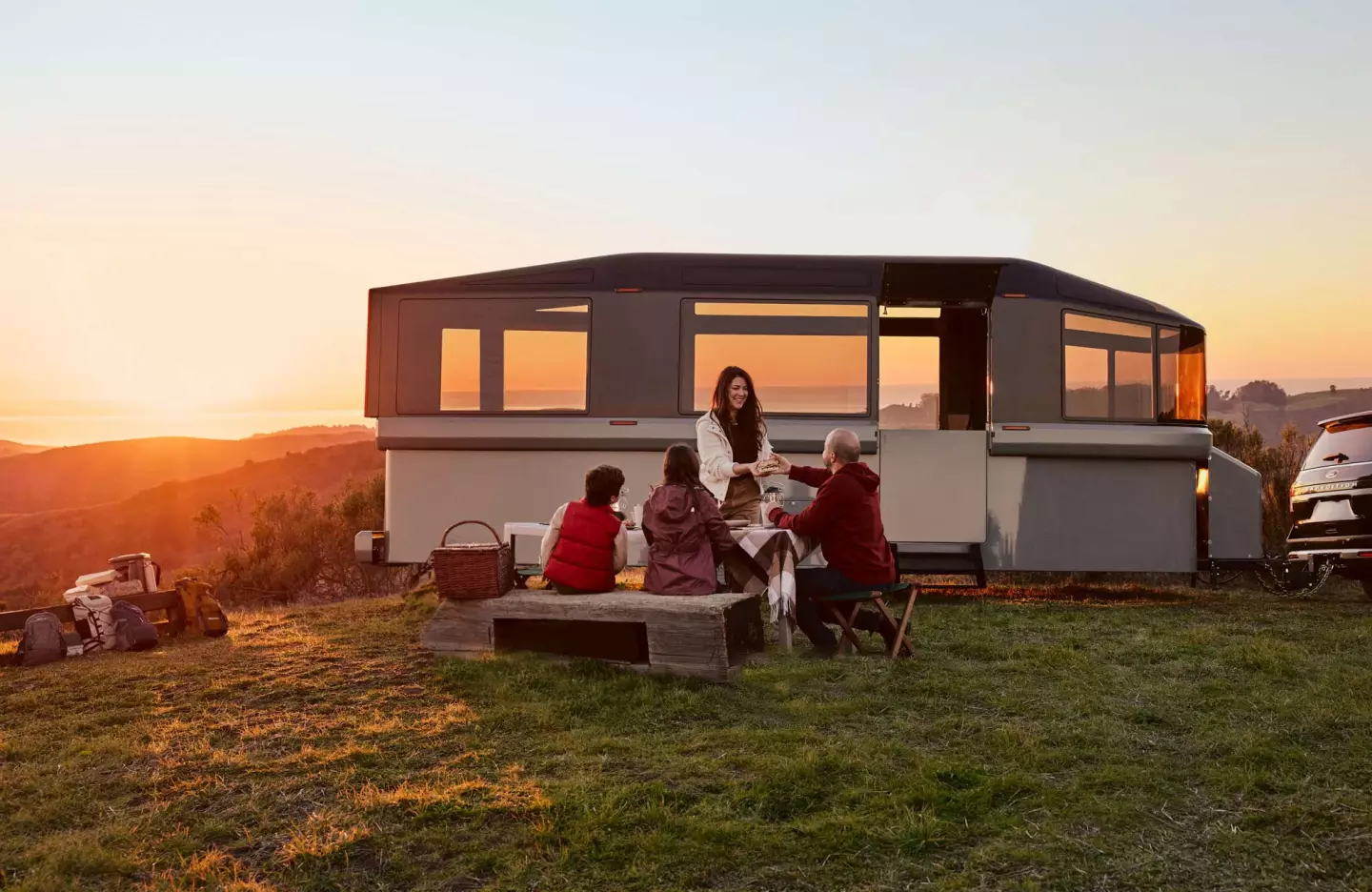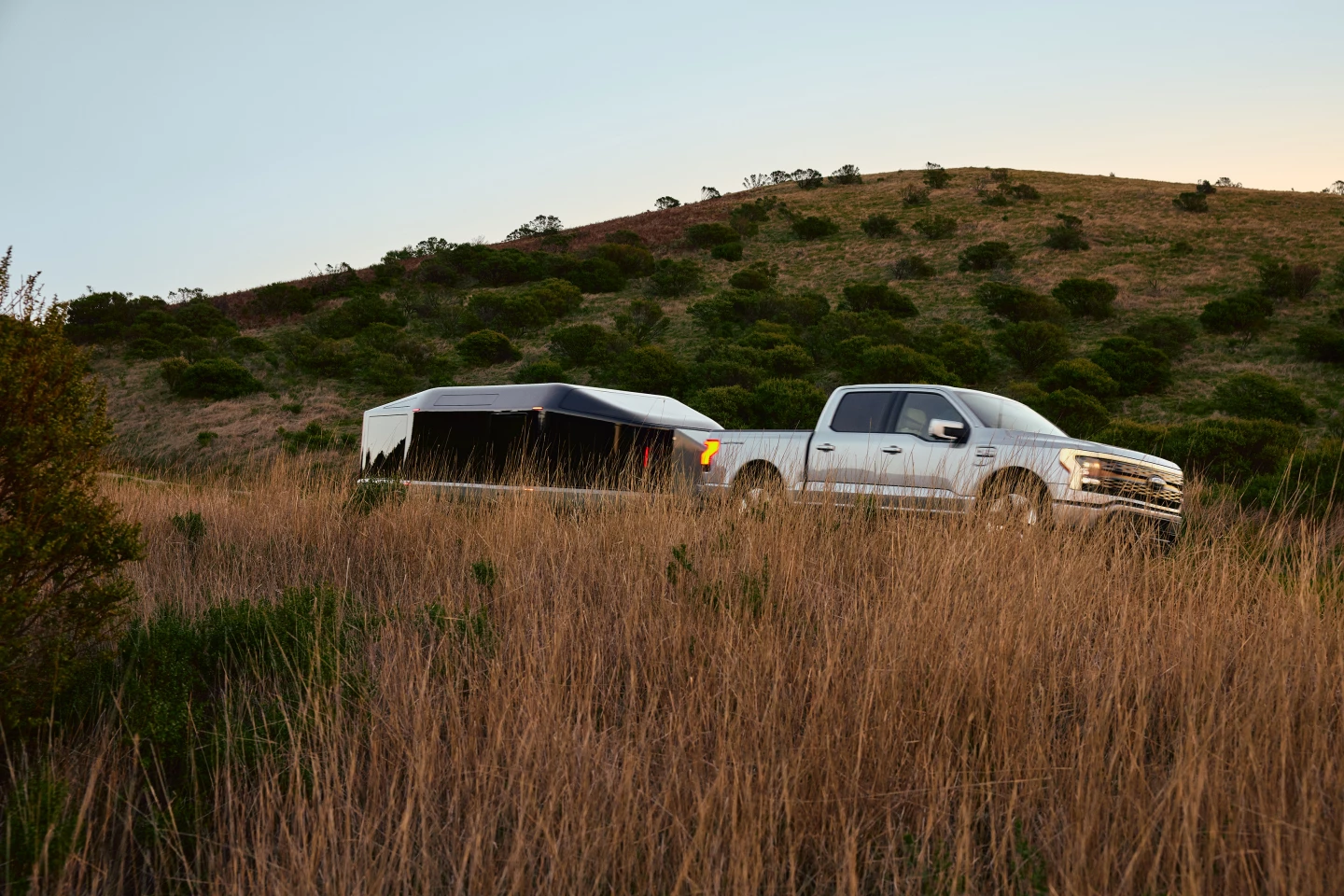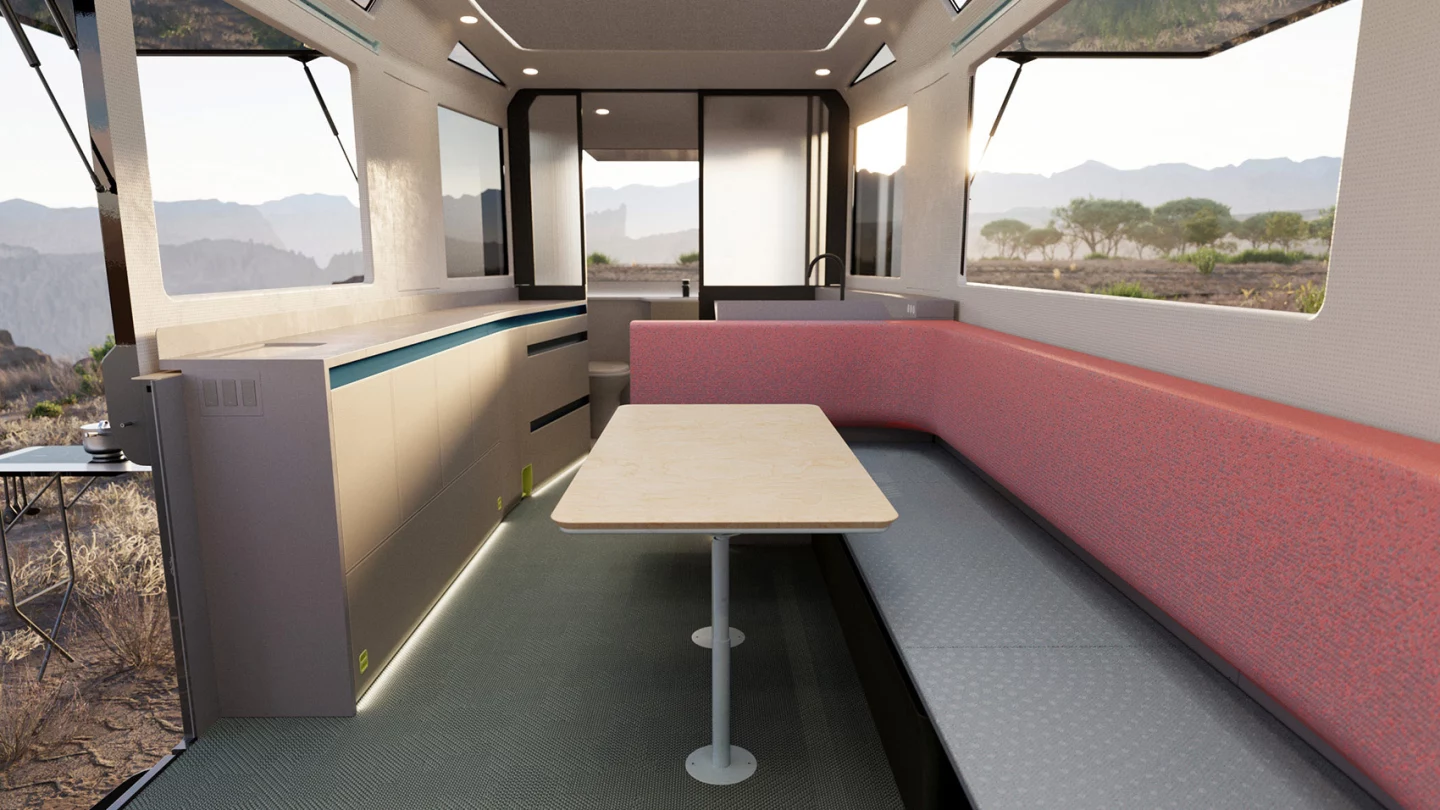The self-propelled camping trailer has been a near-future-previewing concept explored 'round the world for roughly half a decade now. Silicon Valley startup Lightship has become the latest outfit to throw its hat in that particular ring, and it's assembled a team of Tesla, Rivian, Lucid, Proterra and Zoox veterans to see the concept through to production. The company's L1 travel trailer features an all-electric architecture that serves to power the wheels and a week's worth of camping, relying on a retractable aero-optimized shell to further improve efficiency and ensure a 300-mile (483-km) EV can tow the camper for the full 300 miles.
With electrification well under way in the automotive industry, Lightship cofounders Ben Parker and Toby Kraus, both Tesla alums, noticed just how far the RV industry was lagging behind, not only in terms of electrification but also innovation in general. The duo had bolder ideas for a quieter, cleaner RVing future and identified an opportunity to disrupt the industry in a way similar to what Tesla had done in the car market.
"One in 10 American families own an RV, but the RV industry hasn’t experienced innovation for decades," Parker declares. "Inefficient, unreliable product designs and a power experience that relies on smelly, noisy gas or propane generators fundamentally hinder the amazing experience of traveling in the outdoors."
Rather than go the route of electrifying an existing RV platform, then, Lightship chose to develop an electric RV from the ground up. It's provided the first look at its L1 prototype today ahead of a show premiere later this week.

The L1 is a 27-foot (8.2-m) travel trailer with a 7,500-lb (3,400-kg) gross vehicle weight rating and sleeping space for four to six people. As such, it strays rather far from the prototypical small, lightweight template that often guides the design of all-electric, EV-friendly trailers. However, Lightship promises that its trailer will be three times more aerodynamic than a traditional travel trailer and capable of offsetting its weight using an all-electric propulsion system based around an 80-kWh battery.
To be fair to the RV establishment that Lightship knocks for its lack of innovation, several major global RV manufacturers have been developing and testing a trailer propulsion system for years, on both sides of the Atlantic. The work started in Germany under Erwin Hymer brand Dethleffs and expanded to the United States after Thor Industries purchased Erwin Hymer Group and developed a self-motivated Airstream concept.

Lightship doesn't specify whether its self-propulsion concept uses a similar formulation to Thor's layout of axle motors, sensors and control hardware for matching trailer speed to tow vehicle speed, but its goal is certainly the same: cut the trailer load to nil to prevent a drastic decrease in range or efficiency. Lightship aims to keep range/efficiency loss near zero so that a 300-mile electric vehicle maintains its full 300 miles of range with the L1 in tow and a gas truck that gets 25 mpg (9.4 L/100km) without a trailer also gets 25 mpg with an L1 riding on the hitch. Or at least somewhere close.
Plans call for the L1's EV-size battery system to power both the motor drive and all onboard appliances and equipment, eliminating the need for gasoline, diesel or propane and ensuring silent, zero-emissions operation at camp. A huge roof-mounted solar array with up to 3,000 watts will help keep the battery full and the camper operating off-grid for up to a week. Lightship also mentions "connected features" but doesn't go into further detail.

The L1 renderings Lightship released this week show that aerodynamics hinge around a multi-positional glasshouse that lowers and nests over top the lower body, dropping the trailer below the height of the tow vehicle. The wheels hide behind fairings for further aerodynamic gains, and the body has been carefully streamlined with a narrow front-end and slippery shape.
At camp, the glassy upper body lifts up to open up a bright, airy interior defined by large windows. The initial floor plan includes a dining lounge with a wraparound sofa large enough to convert into two beds, a kitchen with all-electric appliances, a storage console along the sidewall, and what looks to be a full-width rear bathroom.

Lightship will host a full reveal of the L1 prototype at SXSW in Austin, Texas this weekend. Pre-orders can be placed now for a US$500 reservation fee, and Lightship plans to begin production in late 2024. The L1 starts at $125,000, and Lightship says an available tax credit can cut that price to $118,400.
Source: Lightship















